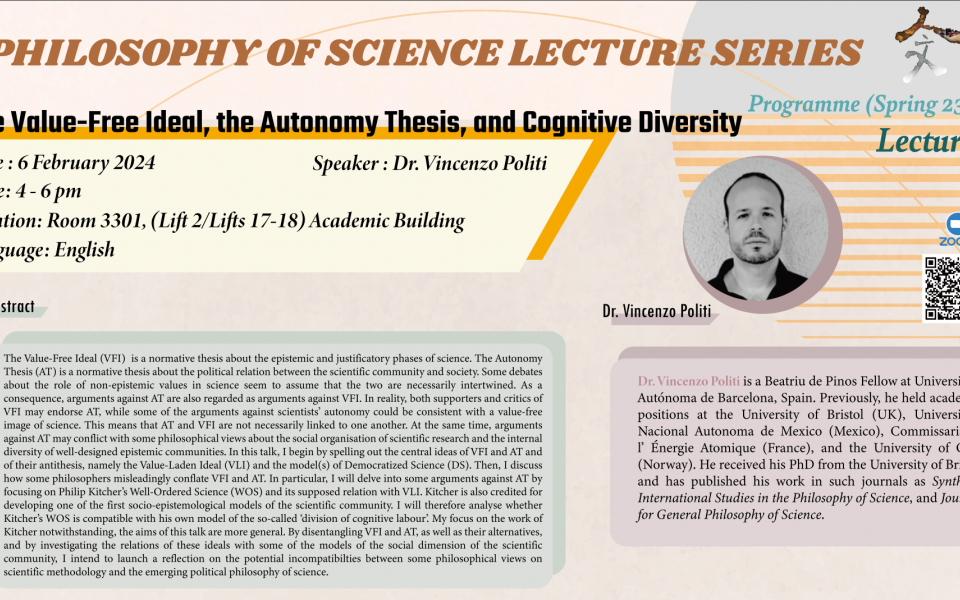Philosophy of Science Lecture Series - The Value-Free Ideal, the Autonomy Thesis, and Cognitive Diversity
Supporting the below United Nations Sustainable Development Goals:支持以下聯合國可持續發展目標:支持以下联合国可持续发展目标:
The Value-Free Ideal (VFI) is a normative thesis about the epistemic and justificatory phases of science. The Autonomy Thesis (AT) is a normative thesis about the political relation between the scientific community and society. Some debates about the role of non-epistemic values in science seem to assume that the two are necessarily intertwined. As a consequence, arguments against AT are also regarded as arguments against VFI. In reality, both supporters and critics of VFI may endorse AT, while some of the arguments against scientists’ autonomy could be consistent with a value-free image of science. This means that AT and VFI are not necessarily linked to one another. At the same time, arguments against AT may conflict with some philosophical views about the social organisation of scientific research and the internal diversity of well-designed epistemic communities. In this talk, I begin by spelling out the central ideas of VFI and AT and of their antithesis, namely the Value-Laden Ideal (VLI) and the model(s) of Democratized Science (DS). Then, I discuss how some philosophers misleadingly conflate VFI and AT. In particular, I will delve into some arguments against AT by focusing on Philip Kitcher’s Well-Ordered Science (WOS) and its supposed relation with VLI. Kitcher is also credited for developing one of the first socio-epistemological models of the scientific community. I will therefore analyse whether Kitcher’s WOS is compatible with his own model of the so-called ‘division of cognitive labour’. My focus on the work of Kitcher notwithstanding, the aims of this talk are more general. By disentangling VFI and AT, as well as their alternatives, and by investigating the relations of these ideals with some of the models of the social dimension of the scientific community, I intend to launch a reflection on the potential incompatibilities between some philosophical views on scientific methodology and the emerging political philosophy of science.
Vincenzo Politi is a Beatriu de Pinos Fellow at Universidad Autónoma de Barcelona, Spain. Previously, he held academic positions at the University of Bristol (UK), Universidad Nacional Autonoma de Mexico (Mexico), Commissariat à l’Énergie Atomique (France), and the University of Oslo (Norway). He received his PhD from the University of Bristol and has published his work in such journals as Synthese, International Studies in the Philosophy of Science, and Journal for General Philosophy of Science.
For more information, please click here.
For any enquiries, please email Qinyi Wang (qwangdi@connect.ust.hk).
